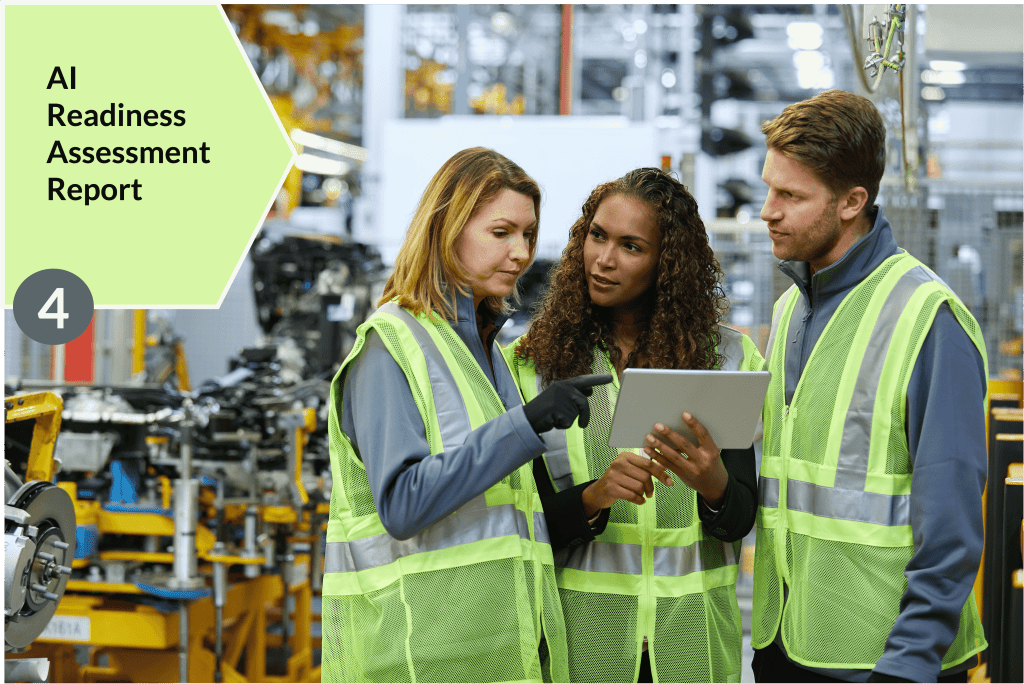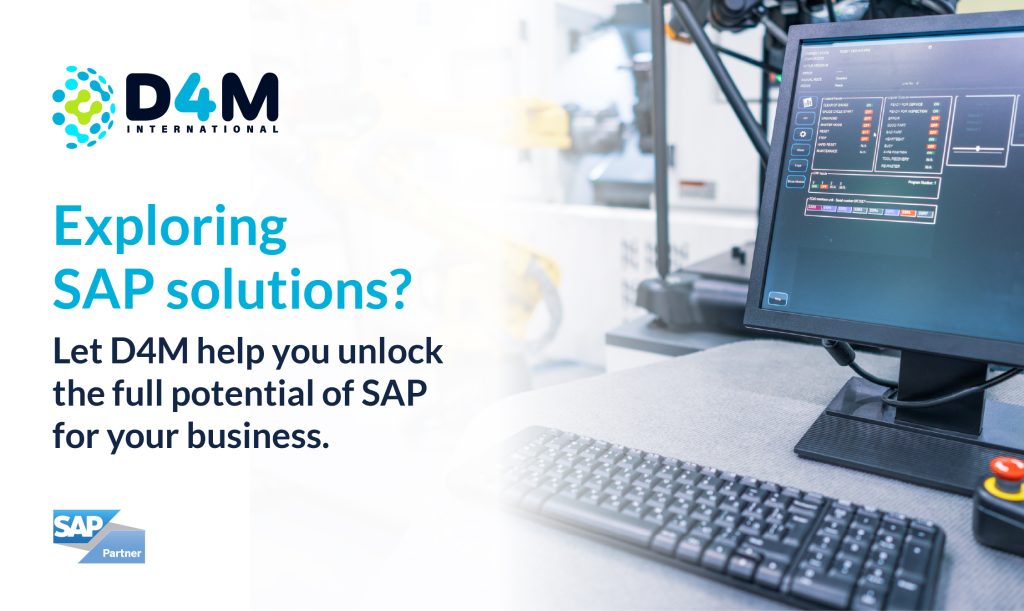SAP AI Readiness Assessment
Get ready for AI: Assess your business and transform your operations with data-driven insights, predictive modeling, and machine learning for SAP
Is your business ready for AI?
AI is revolutionizing the manufacturing and supply chain industries, offering predictive insights, automated processes, and unprecedented efficiency. At D4M, we help businesses prepare for AI adoption tailored to SAP systems, ensuring you’re set up for success.
Steps for AI Readiness Assessment


1. Discovery Session / Workshop
- Objective: Understand your business goals, pain points, and desired outcomes for an AI adoption.
- Input: Key stakeholder interviews, process walkthroughs, and business objectives.
- Deliverable: A summary of business needs and initial AI opportunities identified. The report will provide preliminary feedback on which AI areas the customer should prioritize to quickly catch up with the competition, as well as identify areas to avoid.

2. Current Landscape Review
- Objective: Assess your current SAP and IT infrastsructure to determine integration feasibility and current AI capabilities.
- Input: System architecture diagrams, documentation, operational data and existing automation tools.
- Deliverable: A comprehensive analysis of your current landscape, identifying system gaps and AI integration opportunities. For instance, D4M will evaluate the company’s existing data to determine its suitability for AI adoption.

3. AI Gap Identification
- Objective: Evaluate your organization's AI maturity, pinpoint key gaps in data, processes, and technology, and determine what needs to be addressed before AI implementation.
- Input: Operational data, process documentation, current analytical capabilities, and workforce readiness for AI adoption.
- Deliverable: A readiness assessment report with a score of how prepared your company is for AI, highlighting key gaps and necessary improvements.

4. AI Readiness Assessment Report
- Objective: Deliver a tailored report summarizing findings from previous steps, including current readiness, identified gaps, and key recommendations.
- Input: Insights from discovery, system review, gap identification analysis, tool recommendations, integration strategies, and resource allocation plans.
- Deliverable: A formal AI Readiness Assessment Report outlining strengths, weaknesses, and prioritized action items to prepare for AI adoption.

5. Roadmap & Budget
- Objective: Define a structured roadmap for implementing AI, outlining required system changes, process optimizations, and resource allocation.
- Input: Findings from prior steps, resource availability, implementation timelines and budget constraints.
- Deliverable: A phased AI implementation roadmap with clear milestones, estimated costs, and next steps for AI deployment.
Key Assumptions:
- Timely availability of resources and documentation.
- Access to the existing IT landscape and operational data.
- Alignment on project timelines and milestones.
Ready to explore how AI can transform your business? Contact us today to schedule your AI Readiness Assessment.
Why should you embark on AI?
Integrating AI into your SAP systems offers substantial benefits, including cost savings, enhanced efficiency, and improved forecasting accuracy. Here are some compelling statistics from SAP:

Cost Savings
AI-powered algorithms can optimize production schedules, logistics routes, and delivery processes, leading to significant cost reductions.

Improved Efficiency
Automated supply chain processes bring significant cost savings, while AI-based inventory management reduces holding costs for excess stock.

Enhanced Forecasting
AI-driven predictive analytics can forecast demand more accurately, allowing businesses to optimize inventory levels and reduce wastage.
These insights demonstrate the tangible advantages of integrating AI into your SAP environment, leading to significant improvements in operational efficiency and financial performance.
Frequent Asked Questions
Typically, 4-6 weeks depending on the complexity of your systems.
Automotive, food and beverage, electronics, and discrete manufacturing.
Yes, we recommend starting with a pilot project to demonstrate value.




